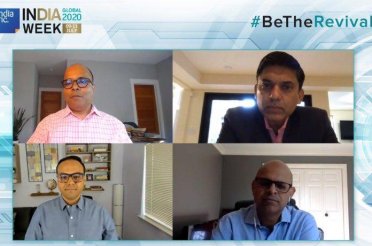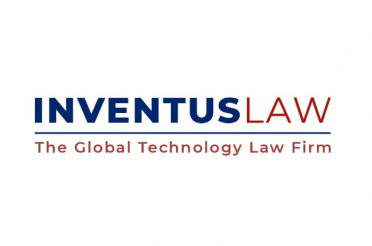MEMO re Prospective Employer Pay to Non-hired Candidate
Question Presented
Whether a prospective employer must pay for work done by a candidate as part of the interview process? For example, if the employer gives a project or task to a candidate and doesn’t end up hiring the candidate, do they have to pay minimum wage for the time spent?
Findings
A. Candidate and the Employee-Employer Relationship
Under the Fair Labor Standards Act, 29 USCS § 201(G), to “employ” means to suffer or permit to work. Generally, that a prospective employer allows the prospective employee to interview for employment cannot mean that that prospective employer has suffered or permitted the individual to work such that she is an employee entitled to compensation. An interview is clearly distinct from the work to be performed. See Saini v. Motion Recruitment Partners, LLC, 2017 U.S. Dist. LEXIS 31627, *1.
The obligation to pay wages only exists to the extent agreed upon between employee and employer. An employee’s underlying right to receive pay or wages derives from the contract of employment, express or implied, the rate of compensation for work performed being normally defined by the employment contract; whether the employment contract is express or implied, it need not be formalized in order for the terms of employment to begin. See 27 Am. Jur. 2d Employment Relationship § 46.
An implied employment contract may exist where there has been performance by the employee and that employee has reason to expect from the words or actions of his or her employer that he or she would be compensated. Id.
An employment relationship may also exist when a person volunteers to perform services for another person with the other’s expressed or unexpressed consent. In order to determine whether an unpaid worker is an employee, some courts use the factors that generally determine whether there is an employment relationship. 27 Am. Jur. 2d Employment Relationship § 7.
The common-law employment relationship test considers (1) whether the worker is engaged in a distinct occupation or business; (2) whether, considering the kind of occupation and locality, the work is usually done under the alleged employer’s direction or without supervision; (3) the skill required; (4) whether the alleged employer or worker supplies the instrumentalities, tools, and place of work; (5) the length of time the services are to be performed; (6) the method of payment, whether by time or by job; (7) whether the work is part of the alleged employer’s regular business; and (8) whether the parties believe they are creating an employer-employee relationship. See Saini v. Motion Recruitment Partners, LLC, 2017 U.S. Dist. LEXIS 31627, *1.
Furthermore, if employees [or prospective employee] are so limited in their activities that their time cannot effectively be used as their own, then their availability is more advantageous to the employer than the employees, and the employees should be compensated.27 Am. Jur. 2d Employment Relationship § 49.
In Sullivan v. Kelly Servs., 2009 U.S. Dist. LEXIS 96544, *13, Defendant staffing agency, instructed Plaintiff to interview for positions with several of Defendant’s customers. Because Defendant exerted a high level of control over Plaintiff’s interviews with Defendant’s customers, the court found that Defendant’s role in the interview process differed significantly from the common interview situation during which individuals independently schedule and attend interviews with a new prospective employer. Defendant argued that the Plaintiff should not be compensated for her time spent interviewing because she, not Defendant, received the “primary benefit” from this activity. Id at 18. The court rejected this argument on the basis that the less restrictive federal law was not applicable when the California law is more protective of the Plaintiff’s rights. Id. As a result, the Court ruled that Plaintiff’s time spent interviewing with Defendant’s customers was compensable hours worked. Id.
B. Compensation
In the scenario that a candidate performs work that is deemed compensable during the interview process, they will be entitled to the hours worked at the rate of minimum wage. Under Cal Lab Code § 1194(a), notwithstanding any agreement to work for a lesser wage, any employee receiving less than the legal minimum wage or the legal overtime compensation applicable to the employee is entitled to recover in a civil action the unpaid balance of the full amount of this minimum wage or overtime compensation, including interest thereon, reasonable attorney’s fees, and costs of suit.
Further, “The Industrial Welfare Commission (IWC) is the state agency empowered to formulate regulations (known as wage orders) governing employment in the State of California.” See Morillion v. Royal Packing Co., 22 Cal. 4th 575, 581 (2000). The IWC minimum wage order, 8 C.C.R. § 11000, applies to all employees in California, except outside salespersons, and requires that employees in California receive at least the designated minimum wage for all hours worked. “Hours worked” is defined as “the time during which an employee is subject to the control of an employer, and includes all the time the employee is suffered or permitted to work, whether or not required to do so.” 8 C.C.R. § 11040(2)(K). The two phrases “time during which an employee is subject to the control of an employer” and “time the employee is suffered or permitted to work, whether or not required to do so” are “independent factors, each of which defines whether certain time spent is compensable as ‘hours worked.'” Id.
Applying these principles to the Sullivan case discussed above, the court ruled Defendant was required to pay Plaintiff at least minimum wage for all hours worked interviewing with Defendant’s customers. See Sullivan v. Kelly Servs., 2009 U.S. Dist. LEXIS 96544, *18.
Conclusion
Based on the findings discussed above, the employment relationship test is a fact-intensive analysis that will strongly hinge on the details and nature of the project/tasks performed by the candidate as requested by the prospective employer. As displayed in Sullivan, the courts will strongly construe any work performed by prospective employees to be compensable work in order to maintain the integrity of the employee’s rights. When a candidate performs compensable work, they are entitled to no less than the hours worked multiplied by the governing minimum wage.







